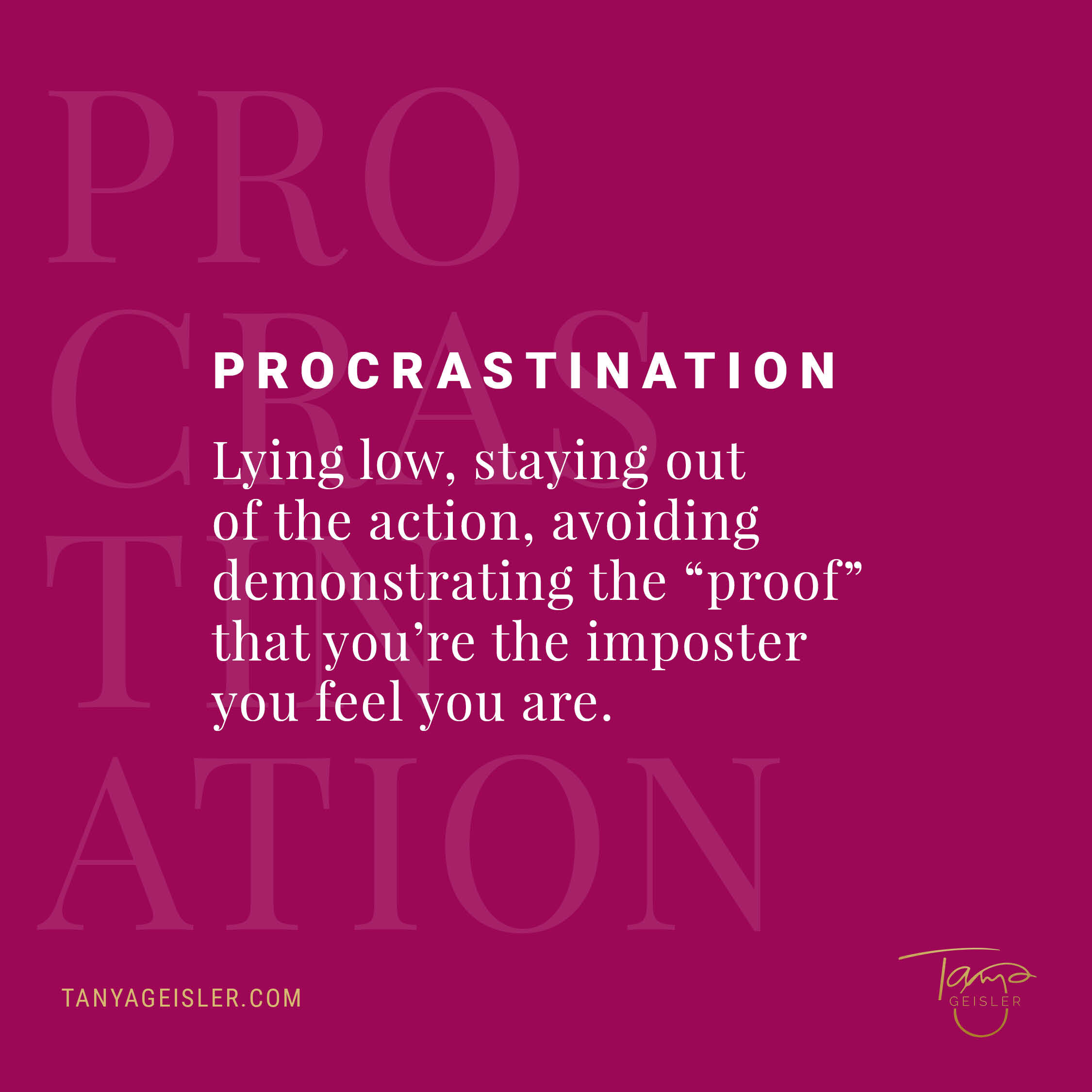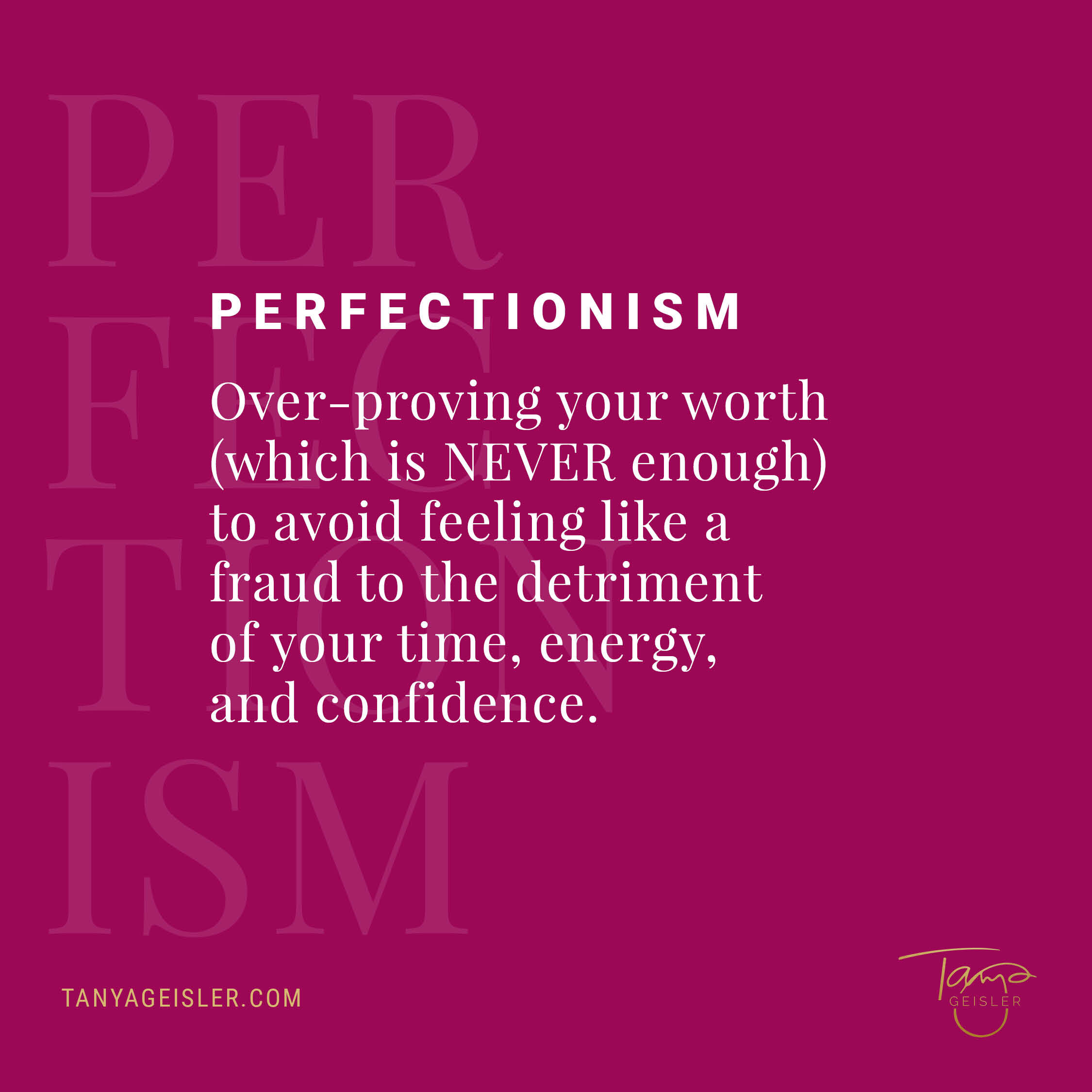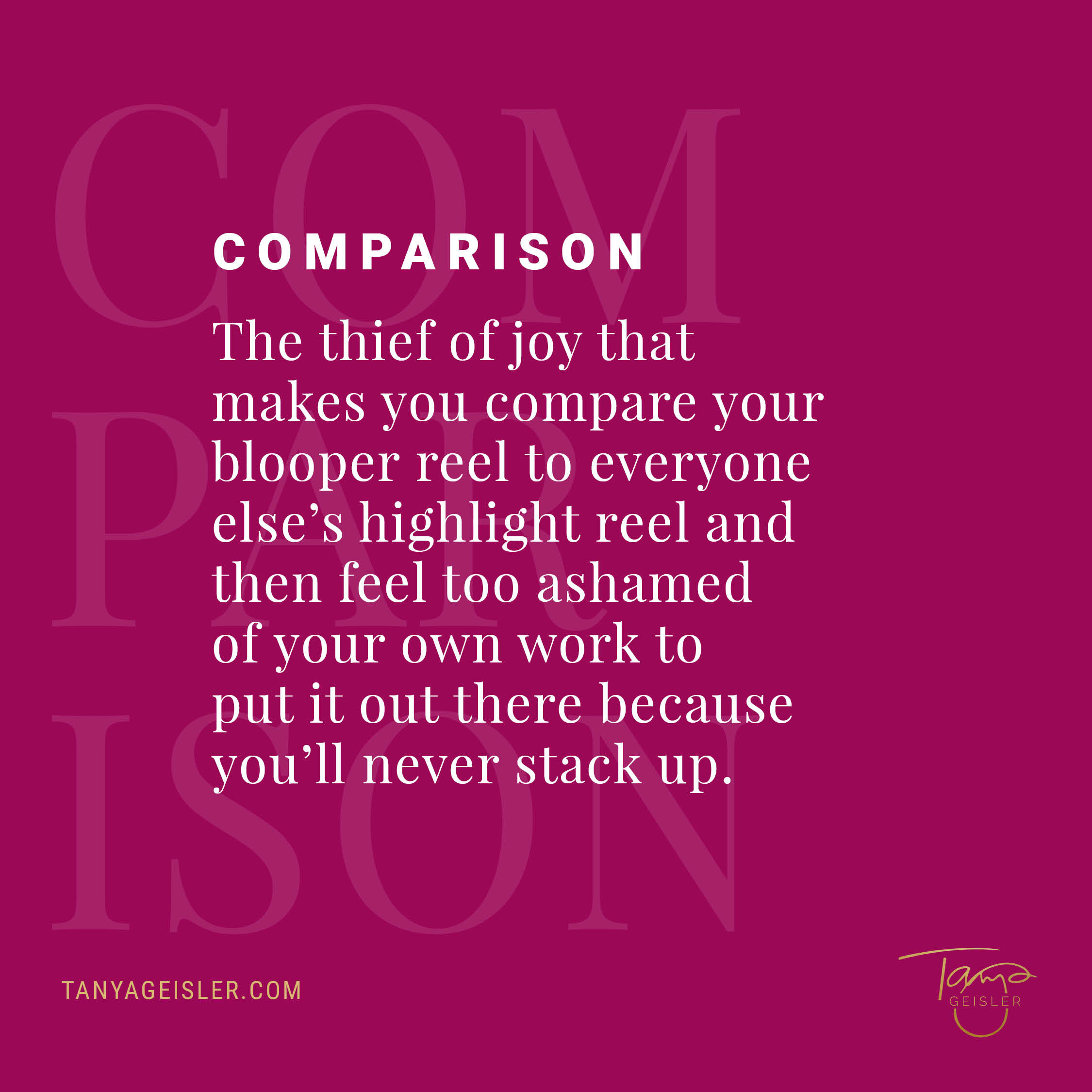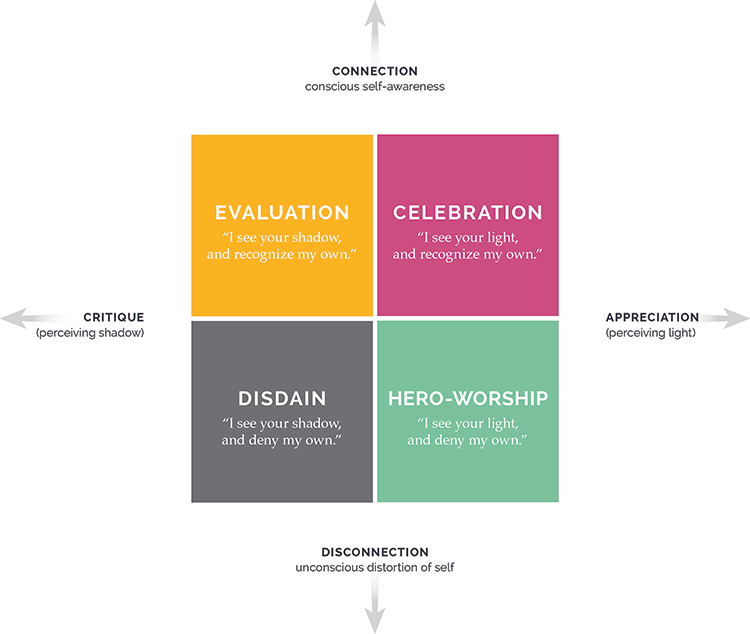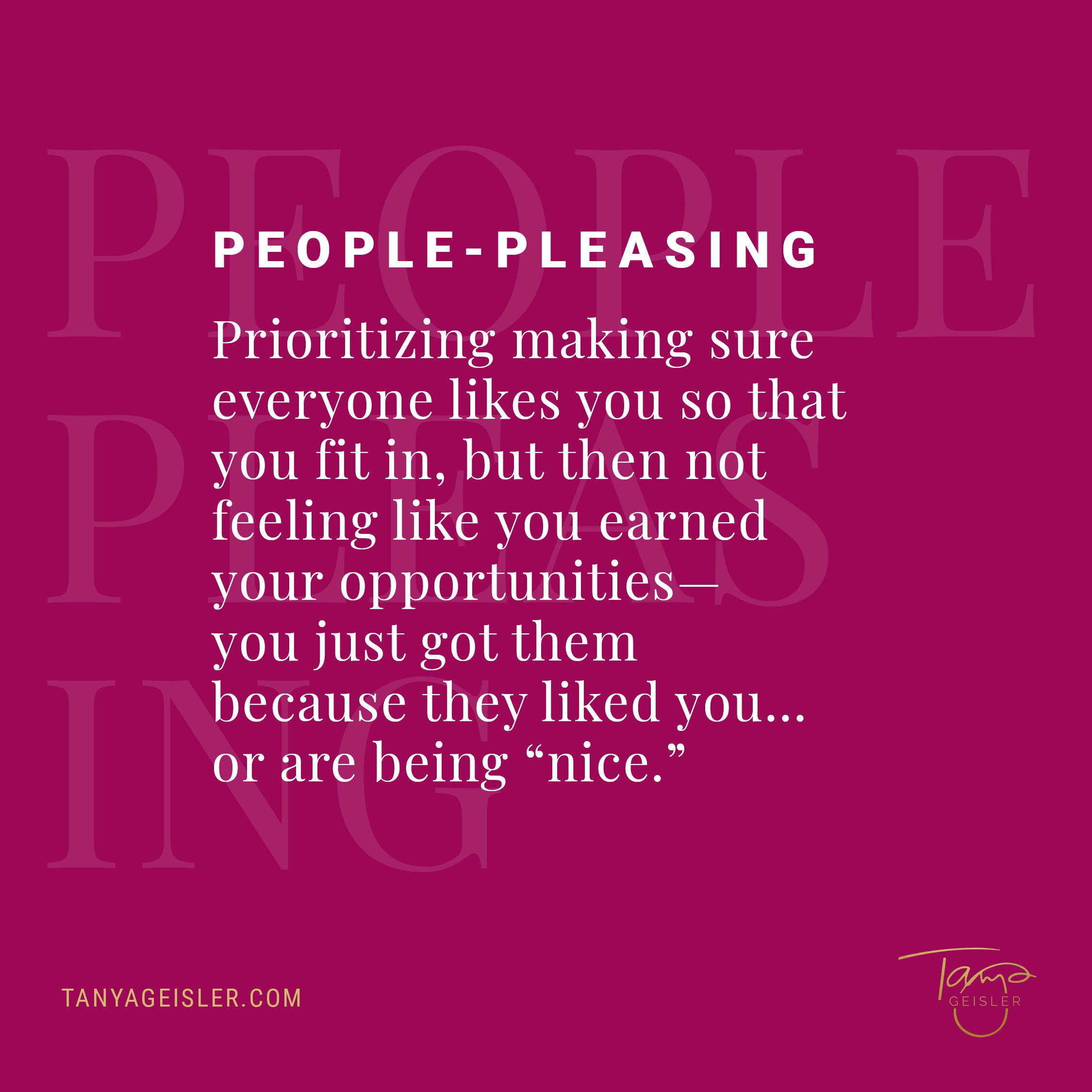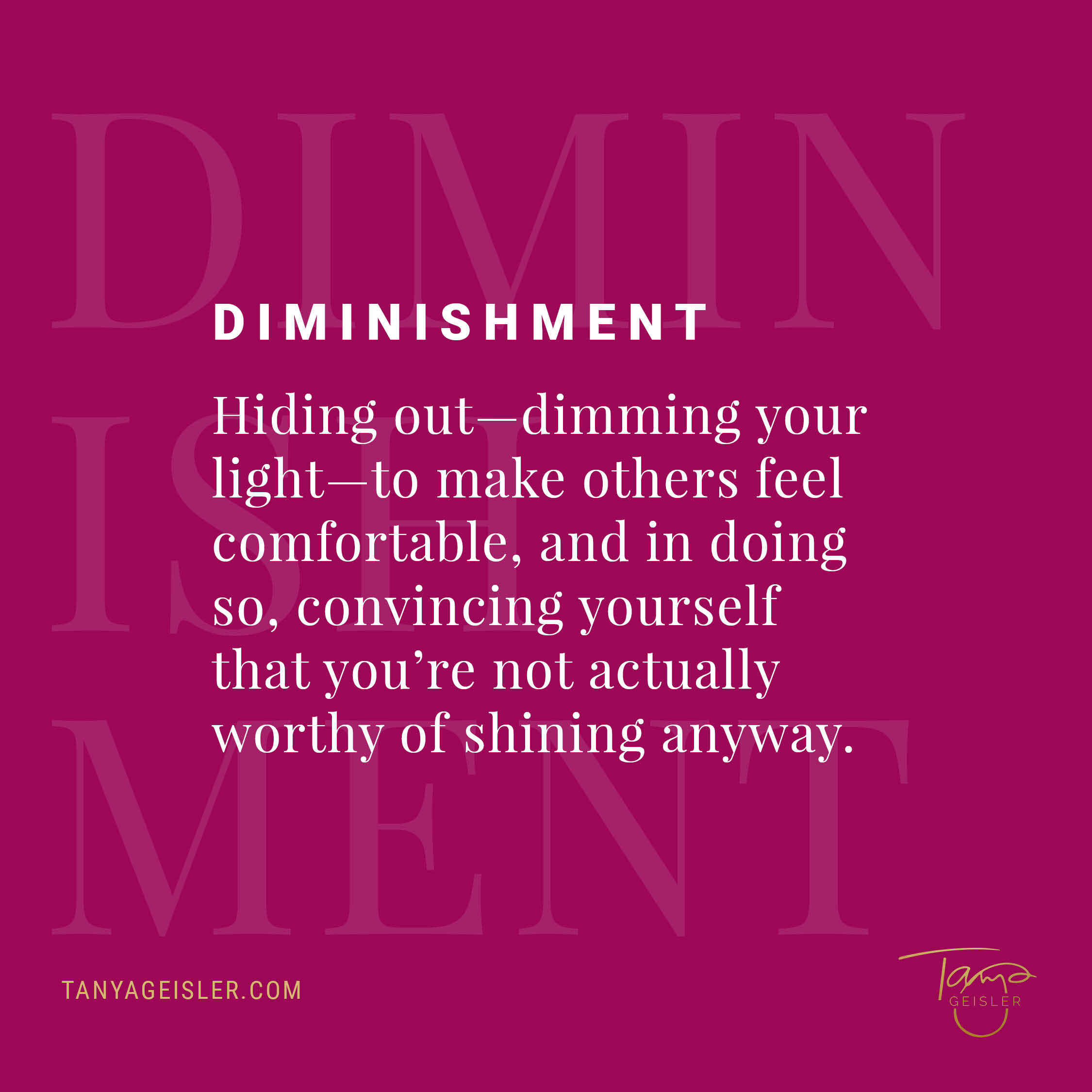
Articles
How to Stop Procrastinating When You Feel Like an Imposter
Quick question: If you landed here by googling “how to stop procrastinating” were you… avoiding something else you were supposed to be doing?
Or were you googling because you were caught (or nearly caught) procrastinating on something important recently?
It’s OK if you were; I’m not going to lecture you! Whatever prompted you to look for more information about how to stop procrastinating, I want you to know: you’re not alone.
Especially if you also suffer from the Imposter Complex. (Around here we say Imposter Complex instead of imposter syndrome, and here’s why.)
Because procrastinating is one of the six behaviours of the Imposter Complex — that AWFUL feeling that we dread experiencing… being found out... The other shoe dropping... Being unmasked... We know better than everyone around us that WE ARE THE Imposter. We are CERTAIN of it. And it’s just a matter of time before “THEY” find out.
So… why tip our hands? Isn’t it better if we just lay low? Stay out of the action? Then no one can find out that we really aren’t as capable as they had imagined, right?
And that’s where procrastination comes in.
(And, possibly, googling “how to stop procrastinating…”)
Except: when you stay out of action, you deprive us of the gift you are. The gifts that you’ve been given. You deprive of us the YOU that we need.
If you’re a coach, service provider, or entrepreneur, this is especially dreadful for you, because it means you’re avoiding the very things that would help you grow your business, serve more people, and create your Impeccable Impact.
So don’t. Get into action.
Stop procrastinating by understanding your procrastination
Now… I’ll be the first to tell you, your tendency to procrastinate may come from an excellent place.
Maybe your fabulous values of temperance and analysis simply want to make sure that you’re doing your work at your best.
Maybe it’s true that you are in the 0.1% of the population who actually DO work best under pressure.
Maybe the task at hand is just not tapping into your creative genius.
I totally get it.
And here’s what I know:
There are two kinds of procrastination: active and passive. If you’re an active procrastinator, this just may, in fact, be your style. But can we agree that it causes you undue stress and anxiety nonetheless?
And if you’re a passive procrastinator, it may be a function of being paralyzed by the enormity of the work ahead.
In either case, procrastination is a place we hide out in when we are having a hard time coping with the Imposter Complex. And when we hide out there laying low, feeling anxious and out of action, the paradox, of course, is that we start to convince ourselves that we ARE the Imposter.
(Which, psst… isn’t possible. ACTUAL Imposters don’t feel like Imposters.)
The cost of procrastination is huge. It can cause you to produce subpar work, can have you feeling shame and guilt, can create burnout, and above all, erodes your confidence.
And if you’re a coach, service provider, or entrepreneur, this is almost certainly holding you back from serving more people, generating more income, and creating your Impeccable Impact.
All good reasons to stop procrastinating.
But that can be easier said than done, am I right?
How to stop procrastinating…
In my experience, the best way to stop procrastinating is to remind yourself that you are ready enough.
In fact, I believe this — and say it — so often, I even named my podcast Ready Enough…
When procrastination and the Imposter Complex start whispering in your ear, because you have high standards of excellence and mastery (That’s good. And the number one reason why you experience the Imposter Complex.), it might sound like…
The pencil isn’t sharp enough.
Your pitch doesn’t gleam with startling shine.
You’re not smart enough.
Wise enough.
Brave enough.
Charismatic enough.
Gorgeous enough.
Spiritual enough.
Wealthy enough.
Now, what your wealth has to do with how prepared you are to make the ask, set up the appointment with the CEO, or send your manuscript off to the publisher is something well beyond me, but this much I DO know, with every fibre of my being:
Do it. You’re ready enough.
The manuscript is close enough to done.
The pencil is sharp enough to write the words that can change everything.
Your voice is strong enough to say what needs to be said. (Even when it trembles. ESPECIALLY when it trembles.)
As you sit down to make the call or write the book or step up to the mic to deliver the talk that will change EVERYTHING, think about how everything you have ever made, delivered, sold, created, drafted, crafted, survived, healed, and done is coming together. Right here and now.
For this very purpose. For this very moment.
And?
No one was ever fully ready. For anything. The pencil tip can always be sharper.
The space in between the systemic changes you want to see and the brave new world is your decision on whether you are fully ready or not.
Click here for my free training:
Five ICONIC shifts leaders use to overcome Imposter Complex.
Overcoming Perfectionism and the Imposter Complex
Overcoming perfectionism can be a tricky nut to crack when perfection is so idolized by our Western culture.
We are constantly bombarded with images of what perfect looks like — even if it is mostly completely unattainable — and we internalize it from a young age.
(And a lot of those images are mired in capitalism, white supremacy, and patriarchy, which puts that mythical vision of perfection even further out of reach for many of us.)
And it’s even harder when the Imposter Complex taps into that deeply flawed drive for perfection and tries to use it as an excuse to keep you alone and isolated, doubting your capacity, and out of action. (You may have heard this referred to Imposter Syndrome; here’s why Imposter Complex is the more correct term to use.)
Perfectionism and the Imposter Complex
When you’re mired in perfectionism, you constantly feel you’re not ready to do the next big thing on your list. You might be invited to do it, have people clamoring for it, but all along you suspect that you’re a fraud.
And so, to prove your “worth,” you dig in with over-preparing, refining, polishing, perfecting. You try to learn EVERYTHING (and I mean EVERYTHING) about the subject matter lest anyone find you out. It’s never enough. You think about canceling (a LOT). You become anxious and exhausted and it’s all too much.
If you’re a coach, service provider, or entrepreneur, this might show up as not wanting to launch your next offer until it’s “just right,” avoiding speaking engagements because you’re “not ready,” or living in a constant cycle of research and learning instead of just doing the thing.
I’m here to help you overcome perfectionism — because in my experience, it only ever gets in the way of us doing what needs to be done.
Perfectionism is just one more way that the Imposter Complex wins.
Perfectionism is inextricably linked to a patriarchal vision that cannot be met and causes real damage.
Perfectionism is also inextricably linked to white supremacy culture.
Now… don’t get ME wrong: It’s true that your perfectionist tendencies have served and continue to serve you well. They come from an excellent place.
You value diligence and hard work.
Refinement is important to you.
Your values of excellence and mastery are STRONG.
How can any of this be a problem?
Well… you know it, don’t you?
The cost of not overcoming perfectionism
The cost of perfectionism is great. It erodes time, your energy, and, above all, your confidence.
You often feel like “if it’s not perfect, it’s pointless.” But “perfect” is subjective, exhausting, and often a complete and utter myth. And when you cannot attain perfection, you feel like you are the Imposter in the room. Which is a double-bind.
You see… you engage in perfectionism to AVOID feeling the sting of the Imposter Complex. And YET, in engaging in that behaviour, you end up feeling exactly the way you didn’t want to feel.
Because here’s the truth:
Perfectionism is actually the lowest possible standard because it simply doesn’t exist.
Perfectionism is a gold star from some external generalized other.
Thinking about being perfect makes us stay quiet.
And none of this is in service to us or to the greater good.
Overcoming perfectionism
So how do we overcome perfectionism while still recognizing and serving the underlying values of excellence and mastery it often represents?
To me, the distinction is when perfectionism becomes a problem, when it is preventing you from achieving some element of your vision.
And I believe there has to be a middle ground.
For me, the word I use is impeccability. (You can read the origin story of how I landed on that term here.)
For me, impeccability means presence and integrity over perfection.
Impeccability means congruence. A syncing of our insides with our outsides.
Impeccability means an elevation of standards.
Impeccability means expecting more of ourselves.
Impeccability means having more to give because there’s more in the tank.
Impeccability offers grace when there ISN’T more in the tank.
Perfection is punition.
And, ultimately, you are ready enough — exactly as you are. To do and say the things you need to do and say. Because now more than ever, we need you (and me) to say and do the things we need to say and do. There are continents burning and guns in the sky.
Every day, I ask myself how I can be more impeccable in my word, my intention, and my impact. Every day I ask myself what I need to tap into to rise up to a higher standard. And every day the answers look and feel different.
Will I do ANY of it perfectly? No. But can I intend to do it with presence and integrity? Most assuredly.
That’s what I want.
Click here for my free training:
Five ICONIC shifts leaders use to overcome Imposter Complex.
How to Set Boundaries When You Feel Like an Imposter
Boundaries are a beautiful thing. But if you’re wondering how to set some boundaries, it’s a fair guess yours mayyyyy have become leaky. And when we have leaky boundaries, we tend to do things out of obligation (which can breed resentment), we tend to overshare information about ourselves, and we tend to give greater weight to others’ opinions over our own.
In short, it’s hard to tell where we end and someone else begins.
And if you feel like an imposter — like you’re not good enough, or special enough, or important enough to have strong boundaries — it’s likely our old nemesis the Imposter Complex is to blame.
(In case you’re wondering, here’s why I say Imposter Complex instead of imposter syndrome.)
Those leaky boundaries could be the Imposter Complex’s sneaky way of keeping you out of action or doubting your capacity — because if you’re saying yes to everyone else, you might not be leaving enough time to say yes to yourself.
This is especially dangerous for coaches, service providers, and entrepreneurs because it leads to co-dependent clients, scope creep, and resentment.
How to Set Boundaries: Step 1 Define the boundary
The good news is, by respecting your own boundaries, you also teach others to respect them. AND you embody a kind of integrity that is irresistibly magnetic.
In fact, that kind of integrity is one of the three components that make up what I call Unshakeable Confidence.
So how do we set boundaries — especially when we’re struggling with feeling like an imposter?
First, you have to know what your boundaries actually are before you can communicate them.
You may not ever have stopped to ask yourself what’s acceptable — only felt the sick gut twist when you discovered what was not.
I remember the first time I hired a lawyer to help me craft a contract to use with clients. She began asking me a whole litany of questions — what happens if the client does this? What happens if the client does that? — situations I had never even considered before.
The boundaries you may want to set may not be of the binding legal variety — and that’s completely ok. But play lawyer with yourself for just a moment and ask yourself, “What happens if…?”
Enough what if questions and you will bump up against the edge of the boundary in question.
Step 2: Communicate the Boundary
Once you’ve found your boundary and set it clearly in your own mind, the next step is to communicate it.
Oh, did you just shudder and want to hide? I get it.
But the truth is that it’s actually much kinder to be clear about your boundaries than to make the other party guess.
The wonderful thing about boundaries is that they actually create spaciousness and cohesion.
It might have felt uncomfortable imagining worst-case scenarios with the lawyer drafting my contract, but the bright and shining truth is that defining those boundaries was doing a service both to myself and to my clients.
And communicating those boundaries is the second half of that service.
Good fences make good neighbours. - Robert Frost
If you have to set a boundary with a friend or in another type of relationship, be direct and unapologetic. You might say something like:
It’s not going to work for me to do [that thing you no longer want to do] any more. Here’s an alternative…
I don’t have time for a meeting right now, but if you email me your question I can try to get it answered…
We don’t do that in our family. But we could do this instead…
Two things to note:
You don’t have to offer an alternative solution. “No” is a complete sentence.
If the other person doesn’t respect your boundary right away (or ever) that doesn’t mean it’s wrong or invalid! If someone isn’t used to you holding a boundary, they may push back. That’s on them, not you. If you hold your boundary, that’s what’s important.
One more thing about leaky boundaries:
The reasons your boundaries are a little leaky ACTUALLY come from an excellent place.
Your deep care for others and their perspectives is gorgeous.
Your generosity wants to offer others second chances.
Your value of kindness may fear that having strong boundaries will keep people OUT, and that holding firm boundaries will make you self-centered.
I totally get it.
And here’s what I know:
We tolerate our boundaries leaking to avoid experiencing the sting of the Imposter Complex. To make sure we fit in. To preserve harmony and foster connection.
But there is a double-bind here.
When our fear of NOT belonging becomes bigger than our own thoughts and wants and desires and TRUTHS and we start to adapt to and adopt others’ instead? Well then — of course we actually ARE upholding opinions that are not our own and we are building some legitimacy to the claim that we are Imposters. That’s how confirmation bias works.
Where you are headed requires the fullest version of you and not some lesser version of someone else. Holding firm in your integrity with yourself and your values is vital to your activation.
And no one will respect your boundaries if you don’t respect them first.
Click here for my free training:
Five ICONIC shifts leaders use to overcome Imposter Complex.
How to Stop Comparing Yourself to Others — And Why It Matters
In my career, I have talked to a lot of people about comparison – how to stop comparing yourself to others, why it matters, and how we go about transforming it.
Compulsive comparison is a stumbling block for so many – especially those of us who struggle with the Imposter Complex (here’s why I say Imposter Complex instead of imposter syndrome).
So let’s talk about how comparison works — and how to stop comparing yourself to others.
Why Comparison Matters
In my extensive (professional AND – ahem – personal) research, I have come to understand that comparison tops pretty much any other of the six behavioural traits of the Imposter Complex that get in the way of our progress (again... professional AND personal).
Google “quotes about comparison” the next time you have a spare hour to kill to see just how ubiquitous it is.
When I’m invited to do interviews about comparison, the invites are typically framed as “the #1 issue my listeners are grappling with.” It affects SO MANY OF US. (And while it affects each of us differently, if we’re being honest, most of us have been brought to our knees by its force on occasion.)
If you allow it, you can stop comparing yourself to others and see where comparison may be...
stopping you from creating what you want
preventing you from activating your calling
making you feel (and play) small for fear of projections
keeping you from expressing yourself fully
causing you to disown your power (and hand it over to others).
It matters. Oh, how it matters. Only YOU can say for yourself just how much it matters – personally and professionally.
How to Stop Comparing Yourself to Others
It’s useful to think about comparison as a three-dimensional structure. (And this one that my friend and colleague Lauren Bacon created for our program Beyond Compare, is exceptional.)
On the one plane, we compare up (looking up to others in a way that “others” us from them) and we compare down (judging and disdaining others in a way that, you guessed it, “others” us from them).
On the other plane, we compare ourselves to others AND we experience others comparing themselves to us. Up or down. Whether we’ve been put on a pedestal or are judged harshly, the impact of “othering” once again endures.
It looks like this:
The goal is to move us from Disdain to Evaluation and from Hero-Worship to Celebration.
How to Stop Comparing Yourself to Your “Heros”
Generally, when people want to know how to stop comparing themselves to others, they want to stop the sort of “compare and despair” that happens when we scroll Instagram too long. You know what I mean — when all of the sudden we’re convinced that our business will never be as good as theirs, our dinners will never look as good as theirs, and our thighs… Well. Best not to even go there!
But what if you could stop comparing yourself to those people and instead celebrate them for what they have accomplished and inspired in you? That’s Celebration.
To understand Celebration, think of a beloved teacher, close ally, or dear friend – anyone who inspires us to say, “I am better because of you.” They help us face and overcome challenges by showing us our own strengths.
The energy here is a kind of curious equanimity: We notice difference and similarity and make the most of both. We don’t value a person more or less because they possess a particular trait; we simply appreciate it, and ask how we can celebrate it, while also celebrating ourselves.
To shift from Hero-Worship to Celebration, consider the following questions:
Who do I admire?
What do I admire about them?
When I consider these people, do I notice any common threads? If so, what are they?
Now, experiment with looking at those strengths and gifts, and telling yourself that you have the full potential to embody them. What would it look like if you allowed those parts of yourself more room?
How to Stop Judging Others
When we’re judging someone else’s work or behaviour, we often end up in disdain. This is comparison, too! But instead of making ourselves feel bad for not living up to an ideal, we are making ourselves feel better by marking how we are “superior.”
But if you want to stop judging, you can work on moving into evaluation. Evaluation emerges when we choose to engage critically with someone’s work or behaviour without making them, as a person, wrong. Respectful debate, thoughtful performance assessments, engaging a beloved friend in a difficult conversation: all of these exist in evaluation territory.
If you catch yourself stuck in Disdain territory, try this reflection to shift you into Evaluation:
Who do I judge for doing what I’m embarrassed to admit I do too? What’s the behaviour I’m ashamed of?
Who do I judge for behaving in ways I secretly wish I could “get away with?" What do I fear would happen if I behaved that way, too?
Where are the qualities that I disdain holding me back?
What could I do if I gave myself permission to embody those qualities?
Of course, this work has many more layers, but this is a place to start.
The important “fix” to stop comparing yourself
You may have noticed that the “fix,” in each case, is to quit focusing your energy on the other person and direct it squarely towards yourself. While it may feel like it’s the other person evoking a response in you, the reality is that your response is entirely within your control.
You can choose Hero-Worship or Celebration, Disdain or Evaluation.
That’s the freedom that comes from choice. The freedom to create. The freedom to follow your own calling. The freedom to own your authority and succeed on your own terms.
Because we can taste that freedom. And we want it for you.
Click here for my free training:
Five ICONIC shifts leaders use to overcome Imposter Complex.
Stop Saying “Sorry” As a Coping Mechanism: People Pleasing and the Imposter Complex
If you find yourself constantly apologizing — saying “sorry” for taking up space, attracting attention, or rocking the boat — you might be saying sorry as a way of dealing with the Imposter Complex (click here to see why I say Imposter Complex instead of Imposter Syndrome).
To avoid feeling like we don’t belong, aren’t worthy of anyone’s time or attention, or are the Imposter, we tend to go to one of six behavioural traits of the Imposter Complex — and if you are trying to stop saying sorry all the time, you probably go to my particular coping mechanism of choice: people-pleasing.
We’re in excellent company...18.6% of you share People-Pleasing with me as your go-to behaviour when Imposter Complex strikes.
We are a fun bunch, we people-pleasers. We can be pretty charming and likable. We are relational and sociable. We care a LOT about others. We value inclusivity. We make things happen by bridging connection. We can be generous and gracious, though sometimes we are charged with being “generous to a fault.” We learned early on about flies and honey. It’s part of “feminine conditioning” that my friend and colleague Jo Casey speaks to.
I love us. I celebrate us.
And bonus: Our ability to blend in with the crowd, and in fact, be welcome in most, means that we can avoid feeling like an Imposter. It’s cozy in the middle.
But the flies are IN the honey.
And I’ve spent my life trying to pick them out:
People-pleasers may say “sorry” too much to try to please everyone…
We can lose ourselves in trying to do the impossible: pleasing everyone.
Playing to our fans and avoiding our detractors can mean that our Integrity becomes eroded. And Integrity is a cornerstone for Unshakeable Confidence.
And I know I don’t need to tell you this: but you can’t please everyone ANYWAY. In some ways, assuming you can has an air of intrinsic arrogance. If you set out to please everyone, you will fail 100% of the time AND lose yourself in the process. (Those are not the odds you want.)
So don’t. (Yeah, I know: #simplenoteasy.)
Your people will get it.
Your people will get YOU.
And THAT, my friend, is PLEASING.
People-pleasers feel like they didn’t earn their spot…
As people-pleasers, our relatability gets us in the door alright. But the tricky bit comes once we are inside, and we start to fear we didn’t earn it for any reason that MATTERS beyond the charm. We’ll discount any praise we are given and dismiss the opportunity to take the stage or lead the charge. Suddenly our talents and skills and will and tenacity don’t seem to matter. And surely, if we weren’t already, we are NOW the Imposter. In a club we were never supposed to enter.
People-pleasing is about prioritizing making sure everyone likes you so that you fit in, but then not feeling like you earned your opportunities — you just got them because they liked you... or are just being "nice."
People-pleasers are afraid to rock the boat (but that doesn’t change the world)...
Sometimes, it’s a little TOO cozy in the middle, right? Cozy’s great, but not always the answer to the problem. Sometimes discomfort is. Often, in fact. Already an edge for many, discomfort is poison for cozy-loving people-pleasers who have spent their lives trying to say and do the “right thing.” (And that right thing, more often than not, is the thing that WON’T rock the boat. But it won’t change worlds, either.)
As a people-pleaser, you are likely to opt out of the kinds of action that runs the risk of pissing folx off.
Said another way: people-pleasing strips us of permission to experience righteous rage. And I am not here for that. (I know you’re not either.)
People-pleasers don’t ask for what they need…
You don’t ask for what YOU need. And then TRUE connection isn’t happening. It’s a one-way relationship. And that has never worked out so well, now has it?
Your people-pleasing comes from an excellent place.
When everything is said and done, and the Imposter Complex is working double and triple time to keep you out of action, doubting your capacity, and alone and isolated, I want you to know this, my people-pleasing friends:
Your tendency to please others comes from an excellent place:
Maybe your value of inclusivity wants to be assured that everyone feels heard.
Maybe your value of connection wants to bridge differences.
Maybe your value of generosity just really loves offering grace.
Maybe keeping others pleased around you was a question of SURVIVAL.
So I am not here to tell you to unravel all of the glorious aspects of who you are.
I am, however, here to tell you this:
For you to be the fullness of you, you just may have to disappoint some people — and stop saying “sorry” for doing it. #sorrynotsorry
(It will be well worth it.)
and
You are not responsible for sourcing anyone else's joy. No matter how “easy” it is for you. (That’s on them.)
And finally, instead of assuming “they’re just being nice”...
What if you could stop saying “sorry” for taking up space and just owned it?
What if you believed them when they told you just how truly remarkable you are?
What if you could just dare to believe them?
What if you could just dare to believe ME?
What then?
Click here for my free training:
Five ICONIC shifts leaders use to overcome Imposter Complex.
How to Stop Playing Small: Diminishment and the Imposter Complex
It’s a funny thing.
When people are faced with the different behavioural traits of the Imposter Complex (P.S. this is why I use “Imposter Complex” instead of “Imposter Syndrome”) — that is to say: people-pleasing, procrastination, perfectionism, leaky boundaries, comparison, and diminishment — it’s DIMINISHMENT, the fact that they’re playing small, that most people come around to eventually.
It’s a one-two punch. They may initially identify as a people-pleaser or a perfectionist, but upon further digging, what tends to often be in the way of getting their great work out in the world is the fact that they keep playing small and diminishing themselves. (If you haven’t ID’d what might be in your way yet, check out the Imposter Complex quiz here.)
Diminishment is about hiding out — playing small, dimming your light — to make others feel comfortable, and in doing so, convincing yourself that you're not actually worthy of shining anyway.
Diminishment is the way in which we dial our brilliance and our message down. Take up less space. Avoid displaying actual confidence at all costs.
I suppose this should come as no surprise to me given the evocative language I use in and around “Stepping into your Starring Role” and creating “Your Impeccable Impact;” it’s INTENDED to be a calling forth of those hiding ever so slightly in the shadows off-stage.
Which is to say...YOU.
Diminishment is a nice and safe way to avoid feeling like an Imposter. No one can call us fraud, charlatan or cast us aside if they can’t see us, right?
To be certain.
And of course, it doesn’t just look like staying off the metaphorical stage.
When you tell me that you were so ‘lucky that the universe sent you the perfect designer,’ I will remind you that YOU made it happen. YOU took the chance and went on a coffee date and were open and willing and transparent. That YOU have built up a reputable business through tenacity and with excellence that anyone would be thrilled to be a part of. That YOU did your due diligence and knew what the market would bear and made the ask, even as you feared rejection. But yeah. Sure. It was the ‘universe.’
When you tell me that you are having a hard time filling up your Yum and Yay folder because “they’re just being nice” with their praise, I will remind you that nobody has time to just be nice like that and if they sent you a lovely thank you card because you helped them find a new way forward with the problem that they have been grappling with that MAYBE, JUST MAYBE you ought to dare to believe them when they tell you how truly remarkable you really are. In fact, MAYBE, JUST MAYBE you ought to take their words and add them to your testimonials page for the world to see the truth.
So yes,
Diminishment looks like playing small.
Diminishment looks like discounting others’ praise.
Diminishment looks like downplaying our successful decisions and wins.
Diminishment looks like handing over credit where credit isn’t due.
Diminishment looks like hiding behind our clients.
Diminishment looks like minimizing our extraordinary work… because it’s “just what we do… it’s not special.”
Diminishment looks like a crisis of presence.
Diminishment looks like the opposite of sovereignty.
Now, you have good reasons for hiding your glory from us. Of that I am certain.
Maybe you have been burned by loving yourself out loud. (This is particularly acute for folx who are marginalized by the dominant culture.)
Maybe you have seen, far too often, the “good” person corrupted by the limelight.
Maybe you have seen… or have even inadvertently participated in the canonization to demonization of someone.
Maybe you have experienced the pain of the Tall Poppy Syndrome.
Maybe you have experienced the sting of haters and trolls.
Maybe you have committed the Sin of (Out)Shining.
Maybe your strong and glorious value of humility fears getting it wrong and having to eat humble pie.
And, speaking of pies, maybe you’ve been told you’ve already had too much pie. “Be satisfied with what you have, Sugar. It’s greedy to want more.”
There is no quick and easy hack to any of this. Trust me. I know.
But if you want to — really and truly want to — stop playing small and take the stage with your message, your vocation, your calling, I’m certain it will be worth every moment of tension.
It will involve you being brave enough to confront the reasons you stay out of action and the resistance that is keeping you from what you say you want.
It will require you to look at all you have done, without the red pen of editorializing and discounting the efforts you’ve made and the outcomes you’ve created.
It will demand that you not go this alone. It will mean you will gather your people, assemble your cast, bring your fans in close and trust in them. But above all, it will demand that YOU trust in YOU.
It’s time to step up.
More pie, please.
Click here for my free training:
Five ICONIC shifts leaders use to overcome Imposter Complex.

